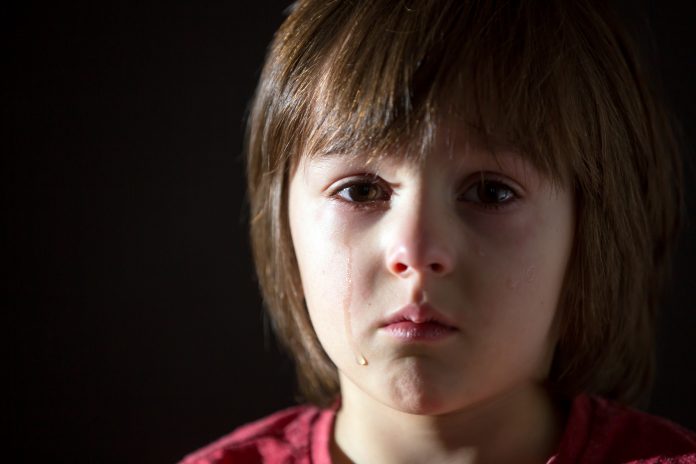A recent report outlines how Conservative social security promises would raise the UK child poverty rate to a record-breaking high
The Resolution Foundation released a report, ‘The shifting shape of social security’, which covers the real-world impact of three key political manifestos: The Conservatives, Labour and The Liberal Democrats.
The meaning of poverty in the 21st Century is ever-changing to us, with up to 70% of children who suffer poverty living in households where at least one adult is employed. So what should politicians bear in mind when creating policy?
What are some predictions for the UK’s future?
1. There is a growing prevalence of disability
Since 2013, the amount of people under 35 with a disability has been rising swiftly. Mental health conditions such as depression are responsible for 61% of the prevalence increase. The role of disability benefits for helping those who struggle to work with a mental illness is a rising issue.
2. Changes to structure of labour market
Households not being in work is no longer the issue it was back in 2010.
Instead, the struggles of the labour market today are defined by a lack of progression, insecurity at the job and in-work poverty. The Nuffield Foundation describe in-work poverty as something that “occurs when a working household’s total net income is insufficient to meet their needs” – think of people who make enough to pay their bills but not enough to enjoy their lives. The use of zero-hour contracts has been regularly criticised for contributing to in-work poverty by removing the security of known shift patterns.
3. Housing-cost pressures are increasing
Rent prices are rising higher than income is, lending to the growth of private accommodations for families.
Cheaper social housing is in decline, which means that people are having to consider different options which leave them in a bad place financially. This has an impact on the lower-earning families who depend on social housing, who are further hit by the current decrease in housing benefits under Universal Credit cuts.
4. Growth in value of assets has outstripped income
It is becoming normal that your accumulated wealth is determined not by how much money you earn, but by who you “couple up with” and “who your parents are” – these things can help you to make more positive risk decisions that increase income, like moving to a new job or returning to education.
Assets were 280% of GDP in 1980, and 680% of GDP in 2015, but taxes on accumulated wealth remain too “light”. It has been decades of fast growth for assets, which suggests that policy-makers need to focus on asset-building.
5. Politicians need to understand who is poor
In 14 years, we currently have the highest percentage of adults willing to spend more on benefits for the poor, regardless of increased taxes. That means 44% are happy for spending to increase, similar to the figures in 2003.
Wealth and poverty have subtly changed: the older you get, the less likely you are to experience poverty. Children are more at risk than pensioners, and the pensioner to non-pensioner difference in social security has never been clearer.
Why would the Conservative manifesto increase poverty?
The research describes the decision between voting Conservatives and the other two main parties as a “stark choice”, with a “clear dividing line” between them, suggesting that the party is in a completely different place to the more progressive parties.
Dominic Cummings, chief advisor to the Prime Minister currently, said in 2017:
“I know a lot of Tory MPs and I am sad to say the public is basically correct. Tory MPs largely do not care about these poorer people.”
With this kind of legacy surrounding them, the Conservatives face extra scrutiny when it comes to social security spending.
What are the three Conservative social security promises?
• £80 million for an easing of Personal Independence Payment Reassessment schedules (2023-2024)
• £25 million for carer’s leave
• £260 million for increased childcare provision for school-aged children
A further £3.8 billion worth of cuts would be dealt to working-age benefits, such as Housing Benefit, Jobseeker’s Allowance and Working Tax Credit. The Liberal Democrats and Labour party further suggest free school meals, amending the two-child limit and enabling disabled children to have a tax-cut when accessing Universal Credit, which would help to prevent an increase in child poverty.
The Universal Credit system introduced by the current government to receive all of these together in one place has caused “some of the most vulnerable people in society” to suffer. The speed of the changeover into the new system has made it increasingly difficult for those with mental health problems to access financial support, in addition to the five week wait some experienced.
The two-child limit on Universal Credit also emerges in this report as one of the main concerns.
The limit affects children born 2017 and after, which is known as a ‘flow’ measure, the full effect and consequence of which we are yet to properly understand. Similarly, the Conservatives are saving a little of their 2015 package of social security cuts, with 27% of these only coming into activation after the 2019 General Election.
The current government reversed one fifth of their 2015 cuts, by placing a £3 billion injection into solving the most urgent Universal Credit issues as highlighted by public watchdogs.
Commenting to the Guardian, a Conservative spokesman said:
“We are committed to tackling child poverty and have made progress since we came into government – with 730,000 fewer children in workless households.
“But we know that we must continue to make every effort on this issue and our manifesto sets out how we will use the tax and benefits system to do this. The prime minister has committed to giving every child in the country the opportunities to make the most of their talents.”
Laura Gardiner, Research Director at the Resolution Foundation, said:
“Under the Conservatives little is set to change, and child poverty risks reaching a record high in the coming years.”
Editor's Recommended Articles
-
Must Read >> Twitter will definitely ban political advertisements





























